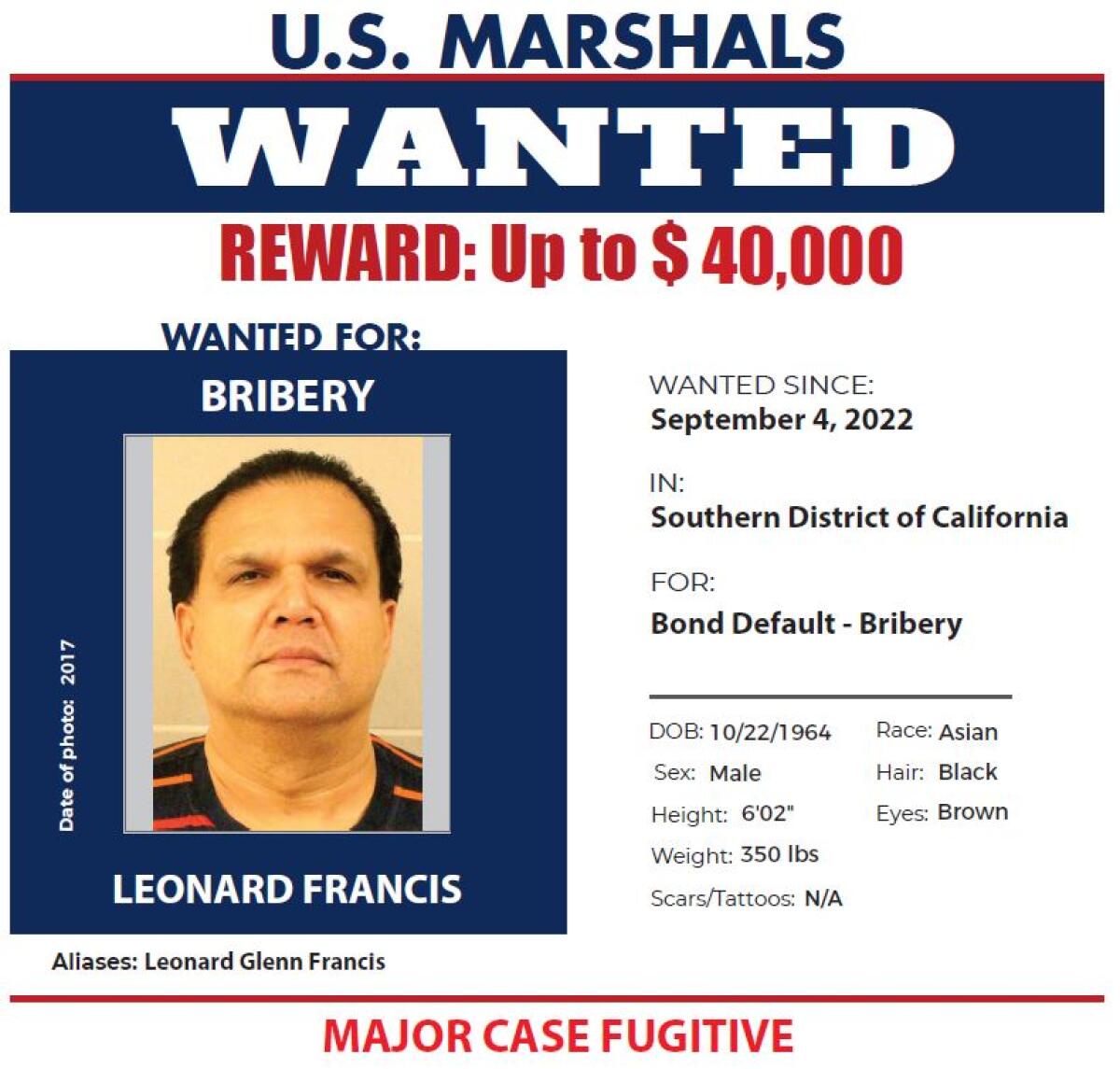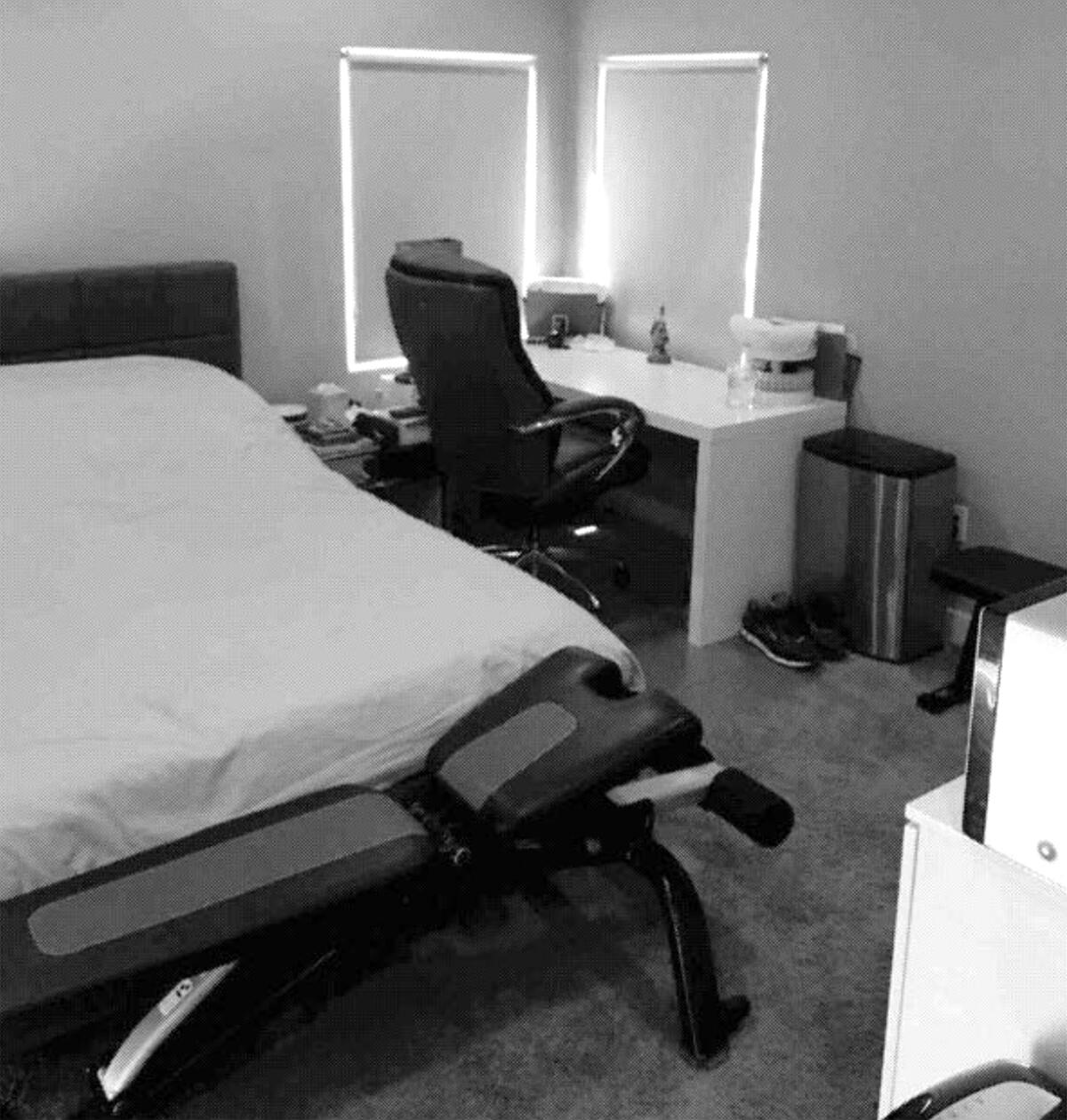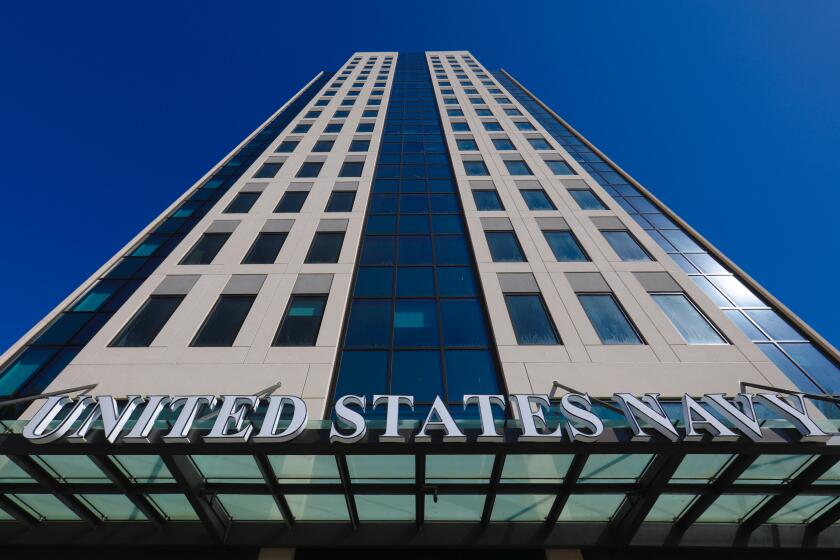Despite ‘clean bill of health’ for some medical issues, ‘Fat Leonard’ stayed out of jail

- Share via
SAN DIEGO — In late 2020, Leonard Francis was given a “clean bill of health” by a doctor who had been treating the notorious Malaysian defense contractor for more than two years, under an unusual medical furlough that had kept him out of jail to receive treatment.
Despite that pronouncement in November 2020, Francis — the mastermind of a huge corruption scandal that rocked the U.S. Navy and defrauded taxpayers out of millions of dollars — continued to avoid federal lock-up, living at times palatially under house arrest with his own paid security until Sept. 4.
This story is for subscribers
We offer subscribers exclusive access to our best journalism.
Thank you for your support.
That’s when the 6-foot, 2-inch Francis, nicknamed “Fat Leonard” for his more than 300-pound girth, sliced off a GPS ankle bracelet he had worn since 2018, and went on the run.
Two weeks after the stunning escape, the whereabouts of Francis remain unknown. Federal authorities believe he slipped across the U.S.-Mexico border and have offered a $40,000 reward for his arrest.
Now, the history of his unusual medical furlough has become more urgent, not only in light of his escape, but also in the aftermath of a trial of four Navy officers recently convicted of accepting bribes.
Lawyers for the four, who were convicted at a trial that ended in June, filed a motion Friday demanding all information about his medical release. They had sought it for years before trial but were repeatedly rebuffed. They finally received redacted documents just weeks before trial.
The lawyers contend the lead prosecutor on the case, Assistant U.S. Attorney Mark Pletcher, continued to support keeping Francis outside the jail walls for years — even though Francis was a wealthy man with international ties and motivation to flee. He had pleaded guilty in 2015 to bribery and other charges.

“This is a foreign national with no ties to the United States, who has pleaded guilty to multiple felonies, who has contacts all over the world,” said Joseph Mancano, the lawyer for convicted former Capt. David Newland. “And they let him live under those conditions?”
Details behind the medical furlough are relevant to Francis’ credibility and “the government’s motivation in endorsing Mr. Francis’s unorthodox furlough and the ‘quid pro quo’ situation it created allowing Mr. Francis is abscond,” they wrote.
Since 2018, Francis had been on a medical furlough because of what appears to be a constellation of medical problems that were beyond the ability of the pretrial detention system to handle, according to court records.
The conditions of that release required him to wear a GPS ankle bracelet, have a 24-hour security team paid for by Francis, and follow strict limitations on his movements outside of the private homes he was living in and presumably renting.
At the time of his escape Francis was living in a multimillion-dollar home in a gated community in San Diego’s Torrey Highlands neighborhood. Federal government officials, from the court agency Pretrial Services that was in charge of the arrangement to the U.S. Attorney’s Office, have all declined to answer the many questions about how Francis was able to escape.
The letter declaring Francis’ “clean bill of health” to U.S. District Judge Janis Sammartino, and how it triggered an emergency hearing called by the judge, is contained in 327 pages of court records that were sealed until January of this year.
According to transcripts, Francis’ lawyer Devin Burstein told the judge the letter was part of a billing dispute with the doctor, who was Francis’ bariatric surgeon. Burstein declined to comment on the letter when reached recently.
In an ironic twist, Francis — who had pleaded guilty to masterminding a years-long billing fraud against the U.S. Navy to the tune of tens of millions of dollars — had become upset when his family auditors came to believe he was being overcharged on his own private medical bills. That dispute led to a falling out with the physician, Burstein told the judge.
The letter from the doctor is one piece of a puzzle about the state of Francis’ health. There is little doubt based on the documents released so far that Francis was ill: At some point he had been diagnosed with renal cancer, and the newly unsealed court records — with all specific medical information redacted — strongly indicate that for some time starting in 2018 he was in poor health.

But other information outside the court record casts his medical issues in a different light. In an interview recorded secretly from his home arrest sometime in 2021 with podcaster Tom Wright, Francis talked about his medication regimen and overall health.
Wright asked him at one point if his cancer was in remission. “No,” Francis responded, then added, “I have to maintain my medical condition because that’s what keeps me out. That’s why I have my liberty. If I am well, I am definitely not going to be here.”
Questions about Francis’ health status have become more pointed in the past two weeks since his escape. For more than four years it was a closely guarded secret, discussed only in more than a dozen closed-door, sealed-transcript hearings that Sammartino held.
It also was an issue for defense lawyers representing the group of Navy officers who went on trial earlier this year. Their lawyers, who had been in the dark about Francis’ home arrest arrangements and medical issues, had long sought more information.
“I thought that he was not truthful about the state of his health,” said Mancano, one of the attorneys. “I mean, one doctor said he was in good health.”
The doctor who wrote the letter declined to comment for this story. The brief letter was sent directly to Sammartino on Nov. 24, 2020. “This letter is to notify you that Mr. Leonard Francis has been dismissed from our practice,” it read. “We wish to congratulate him on his clean bill of health.”
An alarmed Sammartino called a hearing eight days later. She said she was concerned because she had told other defendants and their lawyers that Francis’ release “has been a legitimate medical furlough, and at the point at which it is no longer a legitimate medical furlough, the court may take a different position.”
Burstein then explained that Francis and the doctor had a dispute over billing. The doctor had stopped treating Francis some time previously — he had, in fact, not seen him for months, the lawyer said — and Francis had lost faith in the doctor because he thought he was being overbilled.
He said Francis was now under the care of a new medical team. But that also raised a concern for Pletcher, the lead prosecutor on all the Navy bribery scandal cases.
The case of “Fat Leonard” is the Navy’s worst corruption scandal in modern history. Here’s all the latest coverage of the ongoing investigations and court proceedings.
Pletcher told the judge he found out only the day before that Francis had a new medical team and was “dismayed” about the late notice.
“If he’s having a dispute, he’s having something that impacts this court’s decision on the medical furlough, then we need to be the first people to know,” he said.
He wanted the new doctors to provide a report on Francis’ condition, with an eye on the need to continue the furlough.
“But really what I want to know is, (do) his treatments still require this type of medical furlough, or is this the kind of treatment from an outpatient perspective that he can get with doctor’s visits to and from the facility?” Pletcher said. “And maybe with COVID-19, that’s not possible, right?”
At the time the virus was surging again in the county. A new stay-at-home order would be issued within days of the hearing, hospitalizations for the virus were spiking and case numbers would set daily records. State and federal jails, where the virus could spread quickly, were attempting to keep their populations low, so it is unlikely that Francis in his still-vulnerable health would be returned to custody.
Still, at the hearing Pletcher said that Francis’ treatment had worked well, based on the medical records.
“I don’t want my comments to be lost on what I think is a very important underlying theme,” he said, “which is, in reading through all of this, it appears he’s doing very well, and for that I am thankful, and I think the court is thankful, that all of this has had this intended and hoped-for result, and I now I speak for everyone here in that we hope for the best for Mr. Francis in his health condition.”
By March Sammartino had received reports from new doctors outlining Francis’ medical condition. The redacted transcripts shed little light on precisely what they were, but Burstein told Sammartino that Francis was in line for a series of tests and procedures in the coming weeks.
The new reports, Pletcher said, showed Francis was “doing quite well” and his prognosis good. When Sammartino asked if the medical furlough was still needed, he answered there was still “good cause” to keep Francis in his current living situation.
And that is where he stayed until Sept. 4 around 7:30 a.m., when he cut the monitor and disappeared. It took authorities eight hours from the time the tracking device sounded an alert to realize he had escaped and begin the manhunt.
Francis was scheduled to be sentenced Thursday. The hearing is still on the calendar, though it is unlikely he will be sentenced.
Francis’ plea deal called for him to forfeit $35 million to the government. While he paid $5 million of that several years ago, he fled without having paid out the remainder. He still owes the government $30 million, Mancano said.
How long his sentence was going to be is unknown. By cooperating with the government Francis was expecting a significant reduction in the potential 25-year sentence he could have faced under the three crimes to which he pleaded guilty.
But that agreement is likely void now. A clause in it says by committing nearly a dozen acts, such as not appearing in court or committing new crimes, Francis would be in breach of the deal.
In that case, the government could file any charges “including those that were dismissed, promised to be dismissed, or not filed as a result of this agreement.”
Moran writes for the San Diego Union-Tribune.
More to Read
Sign up for Essential California
The most important California stories and recommendations in your inbox every morning.
You may occasionally receive promotional content from the Los Angeles Times.















